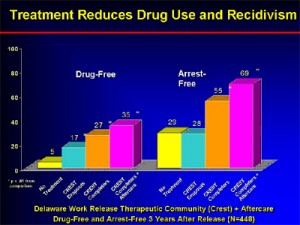From Atty. Miriam Aukerman
As many of you know, the Michigan legislature is considering a bill which would bar people with felony drug convictions from receiving food stamps or basic needs assistance for the rest of their lives. This would seriously undermine the Michigan Prisoner Reentry Initiative, significantly reduce access to drug and alcohol treatment programs (which often depend on participants’ public benefits to help fund treatment), and make it much more difficult for people with drug convictions to reenter society.
We have written a sign-on letter to alert legislators to the tremendously counterproductive consequences of this proposed change in Michigan law. We hope that a broad range of organizations and individuals from the law enforcement, corrections, treatment, social service, and advocacy community will sign the letter. A copy of the letter is attached. (See below for text or click on Letter against lifetime ban on social services for drug offenders to download in Word.) Please forward this request to others in your respective communities who may also support this effort.
Scott Alsgaard of the Reentry Employment Resource Center has kindly agreed to manage the process of collecting sign-on. If you would like to sign the letter, please send your name, title and organization to Scott at salsgaard@wmrerc.org. It is our understanding that the hearing on this bill will be next Tuesday, March 22nd. We intend to send the letter on Monday, March 21st, and therefore need all signatures by 5 p.m. on Sunday night. However, the timing of legislative hearings can change, and we would therefore encourage you to respond as quickly as possible, in case the letter needs to be sent earlier.
Several people have asked about testifying at the hearing. I will send out additional information about the details of the hearing once it becomes available.
Thank you for your support of this effort.
Sincerely,
Miriam Aukerman, Staff Attorney
West Michigan Regional Office, American Civil Liberties Union of Michigan
89 Ionia NW, Suite 300; Grand Rapids, MI 49503
LETTER AGAINST LIFETIME BAN ON SOCIAL SERVICES FOR DRUG OFFENDERS
March 21, 2011
Representative Dave Agema, Chair, House Appropriations SubCommittee – Human Services
Representative Greg MacMaster, Representative Shanelle Jackson, Representative Jon Bumstead, Representative Anthony Forlini, and Representative Rashida Tlaib, Members of the House Appropriations Subcommittee – Human Services
Senator Bruce Caswell, Chair, Senate Appropriations Subcommittee – Human Services
Senator Mark Jansen and Senator Vincent Gregory, Members of the Senate Appropriations Subcommittee – Human Services
Dear Representative Agema, Dear Senator Caswell, Dear Members of the House and Senate Appropriations Subcommittees for Human Services,
We are writing to express our deep concern about the fact that the proposed budget bill for the Department of Human Services’ budget would alter Michigan’s long-standing policy of assisting people with criminal records to reenter the community by providing access to food and basic needs assistance. We urge you to maintain the current policy, because it is critically important for reducing recidivism, providing access to drug treatment, and enabling people with drug convictions to become productive members of our society.
In 1996, Congress passed federal legislation which provides that people convicted of a felony offense involving the use or sale of drugs are subject to a lifetime ban on receiving cash assistance and food stamps. No one, including pregnant women or people participating in drug treatment, is exempt from the ban. However, Congress also allowed states to opt out of this provision. Every year since then, Michigan has chosen to opt out, thereby ensuring that critically-needed support reaches returning prisoners and other low-income people who are seeking to stabilize their lives. Significantly, only ten states have implemented the federal assistance ban without modification; the others have all recognized that denying food and basic needs assistance is counterproductive.[1]
Let us briefly highlight some of the most significant problems with the proposed lifetime ban on assistance to people with drug-related felony convictions.
 First, the lifetime drug felony conviction ban will cost Michigan money, not save it. The food assistance program is entirely federally funded. Michigan will lose otherwise-available federal funds by implementing the food assistance ban. Moreover, the ban will impose additional costs on other social services, as people denied assistance will turn to charities and other state programs for support. For example, parents who are denied benefits may lose their children to the child welfare and foster care systems at a great financial cost to the taxpayer and great emotional cost to the children. Some may turn to crime to support their families and themselves, and inevitably reenter the crowded and costly criminal justice system.
First, the lifetime drug felony conviction ban will cost Michigan money, not save it. The food assistance program is entirely federally funded. Michigan will lose otherwise-available federal funds by implementing the food assistance ban. Moreover, the ban will impose additional costs on other social services, as people denied assistance will turn to charities and other state programs for support. For example, parents who are denied benefits may lose their children to the child welfare and foster care systems at a great financial cost to the taxpayer and great emotional cost to the children. Some may turn to crime to support their families and themselves, and inevitably reenter the crowded and costly criminal justice system.
Second, the lifetime ban on assistance will severely undermine the Michigan Prisoner Reentry Initiative. Michigan has been at the forefront, nationally, in recognizing that providing support for prisoners upon release from imprisonment is critical to promoting their successful reintegration into society. MPRI has significantly reduced recidivism, but that success will be jeopardized if prisoners lack access to the food assistance program, which for many is their primary initial source of support when they are seeking to find employment and rebuild their lives after release from imprisonment. Numerous studies have demonstrated that people with drug problems and criminal justice histories need treatment and other supportive services to make the transition to self-sufficiency. The denial of food and basic needs assistance to people convicted of non-violent drug offenses makes it difficult for them to transition out of poverty into productive, crime-free lives. It is precisely for this reason that prosecutors and law enforcement officials in other states have championed repeal of their states’ bans on assistance to people with drug-related convictions.
Third,the lifetime ban on assistance will jeopardize drug and alcohol treatment services. Many treatment programs depend on public benefits (such as food assistance) to help pay for treatment. Those benefits can constitute a significant source of funding for residential treatment programs, which need them to pay for recipients’ room and board. Loss of these funds could create significant gaps in treatment program budgets, thereby reducing access to substance abuse treatment, and even forcing some programs to close.

Michigan’s corrections spending of $2 billion is well above the levels found in neighboring Great Lakes states (Graph from Lansing State Journal)
Fourth, the lifetime ban on assistance will undermine the criminal justice system.
Michigan’s criminal justice system could be severely impacted if we deprive prison and jail diversion programs of the food stamp payments upon which many such programs (particularly residential alcohol and drug abuse treatment programs) depend. Reductions in funding for drug treatment and other forms of prison/jail diversion would mean less access to these programs and more unnecessary incarcerations, which in turn could cost the state of Michigan and local municipalities millions in increased jail, prison and other criminal justice expenses. It also will impede the efforts of drug courts and other initiatives that divert non-violent addicted offenders from prison to treatment.
For all of these reasons, we urge you to restore to the budget bill Michigan’s long-standing provision to opt out of the lifetime ban on assistance to people with drug-related felony convictions. See Attachment A. We are tremendously proud of Michigan’s leadership on reentry. Let us not undermine that progress by preventing people with felony drug convictions who are seeking to reintegrate into their communities from receiving basic sustenance, addiction treatment, and other essentials.
Attachment A
Standard Provision of Past Budget Bills Providing for Opt Out from the Lifetime Ban on Assistance for People with Drug Convictions
Sec. 619. The department shall exempt from the denial of title IV-A assistance and food assistance benefits, contained in 21 USC 862a, any individual who has been convicted of a felony that included the possession, use, or distribution of a controlled substance, after August 22, 1996, provided that the individual is not in violation of his or her probation or parole requirements. Benefits shall be provided to such individuals as follows:
(a) A third-party payee or vendor shall be required for any cash benefits provided.
(b) An authorized representative shall be required for food assistance receipt.











